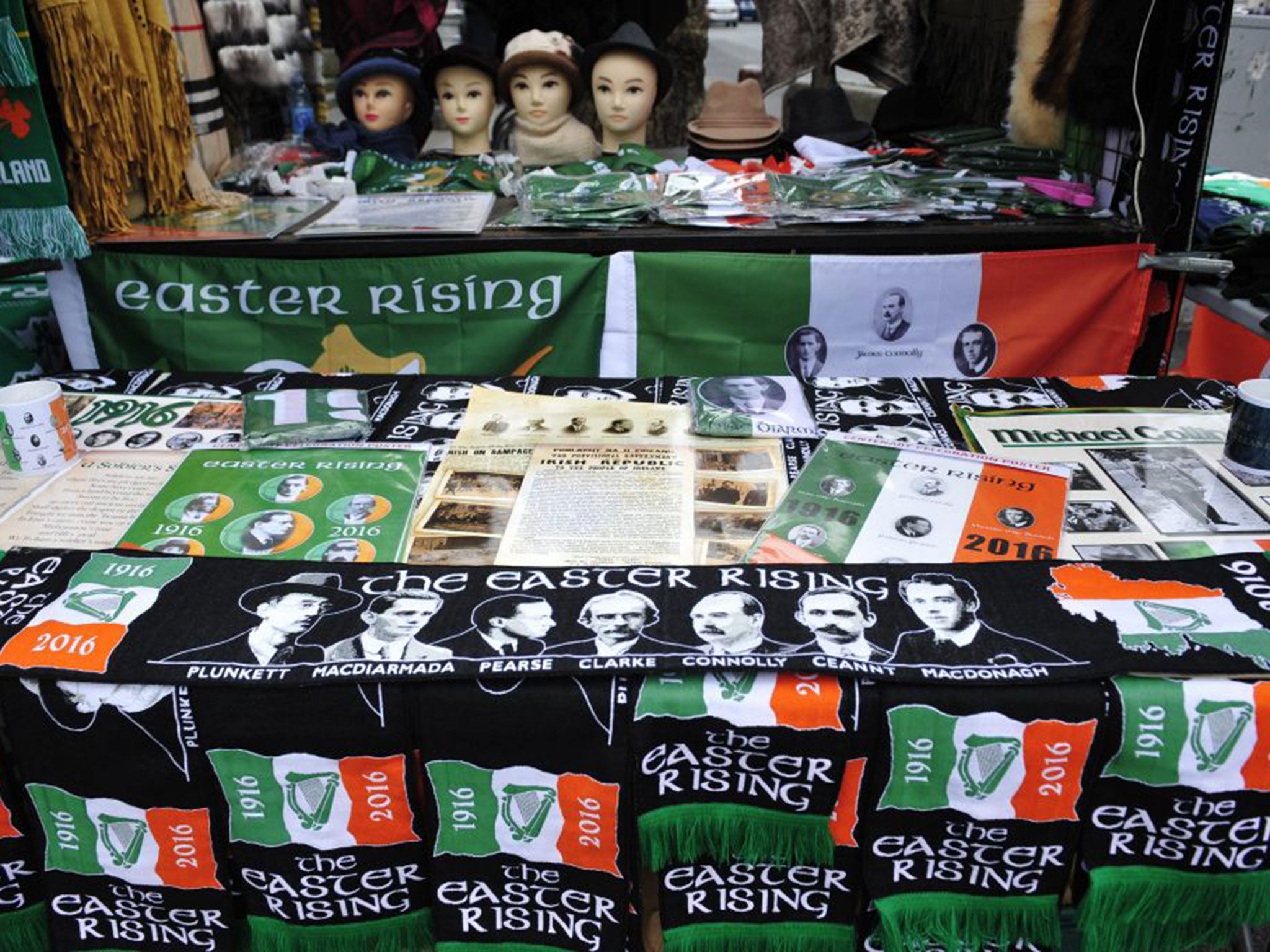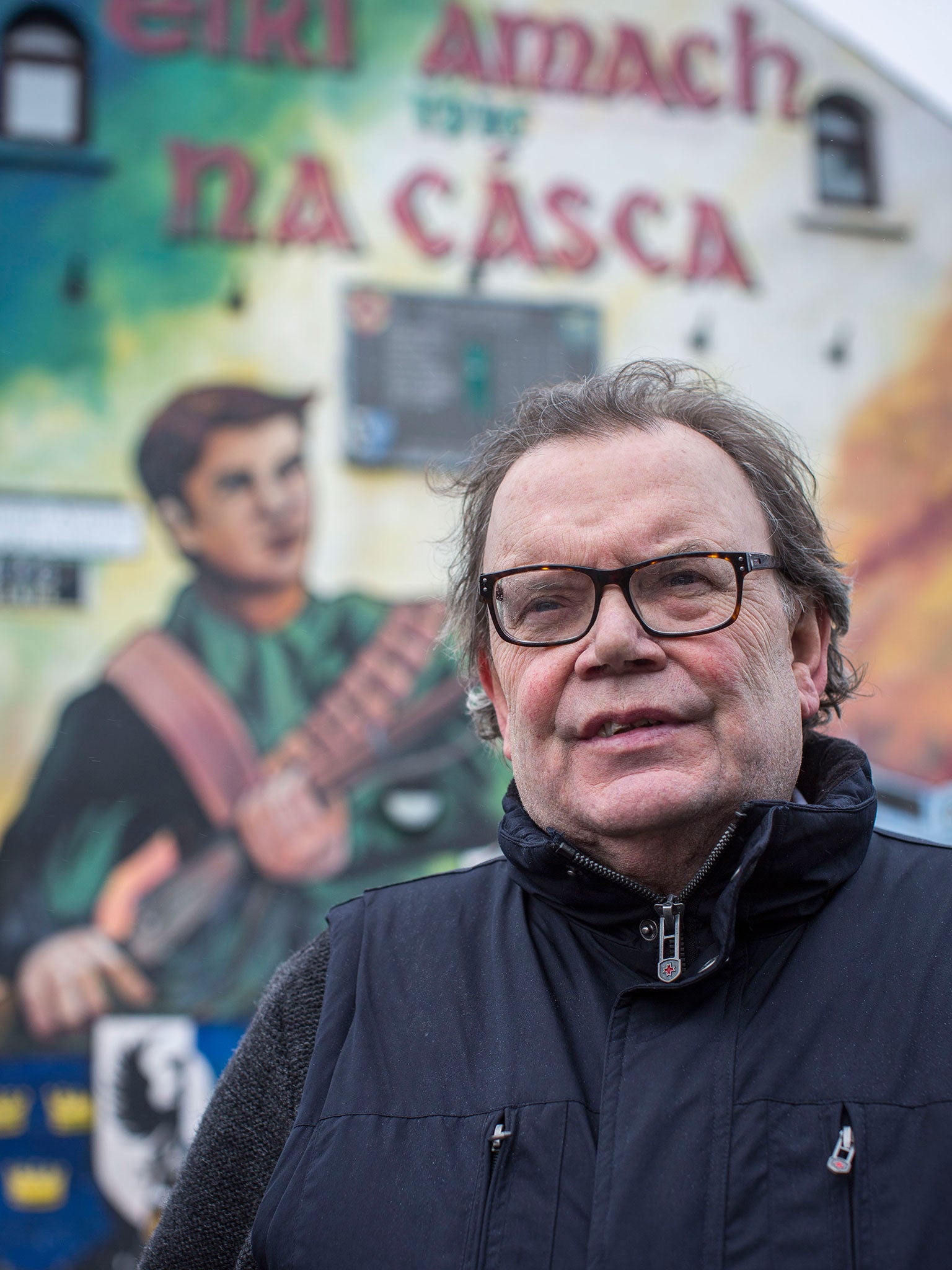Easter Rising: Division still rules in Belfast 100 years on from rebellion
The 1916 uprising against the British is credited with helping the Irish Republic gain independence

Your support helps us to tell the story
From reproductive rights to climate change to Big Tech, The Independent is on the ground when the story is developing. Whether it's investigating the financials of Elon Musk's pro-Trump PAC or producing our latest documentary, 'The A Word', which shines a light on the American women fighting for reproductive rights, we know how important it is to parse out the facts from the messaging.
At such a critical moment in US history, we need reporters on the ground. Your donation allows us to keep sending journalists to speak to both sides of the story.
The Independent is trusted by Americans across the entire political spectrum. And unlike many other quality news outlets, we choose not to lock Americans out of our reporting and analysis with paywalls. We believe quality journalism should be available to everyone, paid for by those who can afford it.
Your support makes all the difference.Outside Belfast’s City Hall, banners announce a forthcoming celebration – of Holi, the Hindu festival. There is nothing at all, however, to alert the passer-by to the exhibition on display inside the building: Reflections on 1916.
You could say the show explores how one group of Irishmen fought for Britain on the Somme while other Irishmen fought against the British in the Easter Rising, the rebellion credited with helping the Irish Republic gain independence. But that seems too stark a contrast for the exhibition organisers.
“Our exhibition,” says a panel, “aims to reflect different perspectives in an inclusive manner... It is [part] funded by the Good Relations Funding Programme.”
In Belfast these days, there is much official talk of “inclusiveness” and “good relations”. Such words may well be heard on Friday, when a statue will be unveiled on the Falls Road in honour of an Easter Rising leader, the former Belfast resident James Connolly.
Ahead of the ceremony, Tom Hartley, an ex-republican prisoner, also an ex-Sinn Fein mayor of Belfast and the chairman of the committee for Belfast’s Easter Rising commemorations, enthused about engaging with all sides. He was, he said, seeking to create “a dialogue which is an invitation to a broad progressive discourse”.
He may have his work cut out. The Easter Rising may have been 100 years ago. The Troubles were not, and there are still walls dividing the Catholic and Protestant areas that neighbour each other.
Near the City Hall gates, Laura Hamilton, 31, points to where the Army checkpoint used to be. “This is still a divided city,” she says. “We still need peace walls. People are still being killed.”

On Tuesday, the funeral of Adrian Ismay, a prison officer killed by a terrorist car bomb, took place. The murder prompted the Police Service of Northern Ireland to warn that dissident republicans might mark the Easter Rising centenary by attacking the security forces.
Sunday’s Easter Rising parades, confined largely to Belfast’s republican areas, are not expected to cause sectarian clashes. But Hamilton, a Protestant, still sticks to the Belfast habit of being careful what you say, and to whom. Only once her Catholic work friend is out of earshot does she say: “Protestants want to stay part of Britain. Why celebrate something that was against the British? When it comes to our culture, republicans don’t want to know…”
Others go further. Nelson McCausland, Democratic Unionist Party Legislative Assembly member for North Belfast, calls the James Connolly statue “an endorsement of the rising in which he was complicit: a cold, callous event orchestrated by the extreme of the extreme”.
He’s not accepting Hartley’s invitation to “broad progressive discourse”. That would merely “divert attention from the real celebration they are engaged in, the glorification of republican violence”.
“Instead of a thoughtful conversation,” he says, “we are getting eulogy, adulation, glorification of violence. It is a poisonous influence on the minds of young people.”
The Falls Road may be only a short drive away from City Hall. It feels like another country. Irish tricolours abound amid republican murals.
In some ways, the change from the height of the Troubles is extraordinary. Today an Englishman asking questions in a Falls Road bar is greeted with smiles and free coffee. Not so long ago, locals tell you, “You would have been shot.”
Some talk optimistically of abundant grassroots reconciliation campaigns, castigating politicians for being, in one woman’s words, “so behind in their thinking, failing to show leadership in getting all sides to work together”.
But you still find men like Bobby Tohill. The 56-year-old plans to be at the statue ceremony, in the uniform of D Company of the IRA, honouring “those who died for the cause”.
His heart tells him armed struggle should continue, “although sometimes I think the violence has to stop”.
There are nods from his friend Michael Collins, 46, a man named after the Easter Rising veteran. As for accusations of glorifying violence, says Collins: “It’s the same on both sides. Protestants glorify violence, of course they do... They brought their kids up to think the same way as them.”
This weekend, he will honour the man who named him, his father Johnny: “An IRA man until the day he died.”
Across the divide, his words find a discordant echo in those of Jack Rooney, 82, a Protestant retired headmaster. His father fought too, in 1916, on the Western Front, with the North Irish Horse Regiment, for the British. He’ll have nothing to do with celebrating Easter 1916. The other lot can celebrate “provided our noses aren’t rubbed into it”.
More surprising is the reaction of his friend David McKillen, who supports the non-sectarian Alliance Party, and professes no religion, now he is 80. He describes some Easter Rising leaders as “idiots, doing it for blood sacrifice, a rebellion that never needed to happen”.
“I was reared a Protestant,” he explains. “No matter what you do, bits of the tradition you were brought up in still stick to you.”
A taxi takes me to the station. The republican driver enthuses about Sunday’s parade, then suggests: “In a few generations, things might change.” For now, though, in this city, when it comes to options for staying neutral: “There are none at all.”
Join our commenting forum
Join thought-provoking conversations, follow other Independent readers and see their replies
Comments